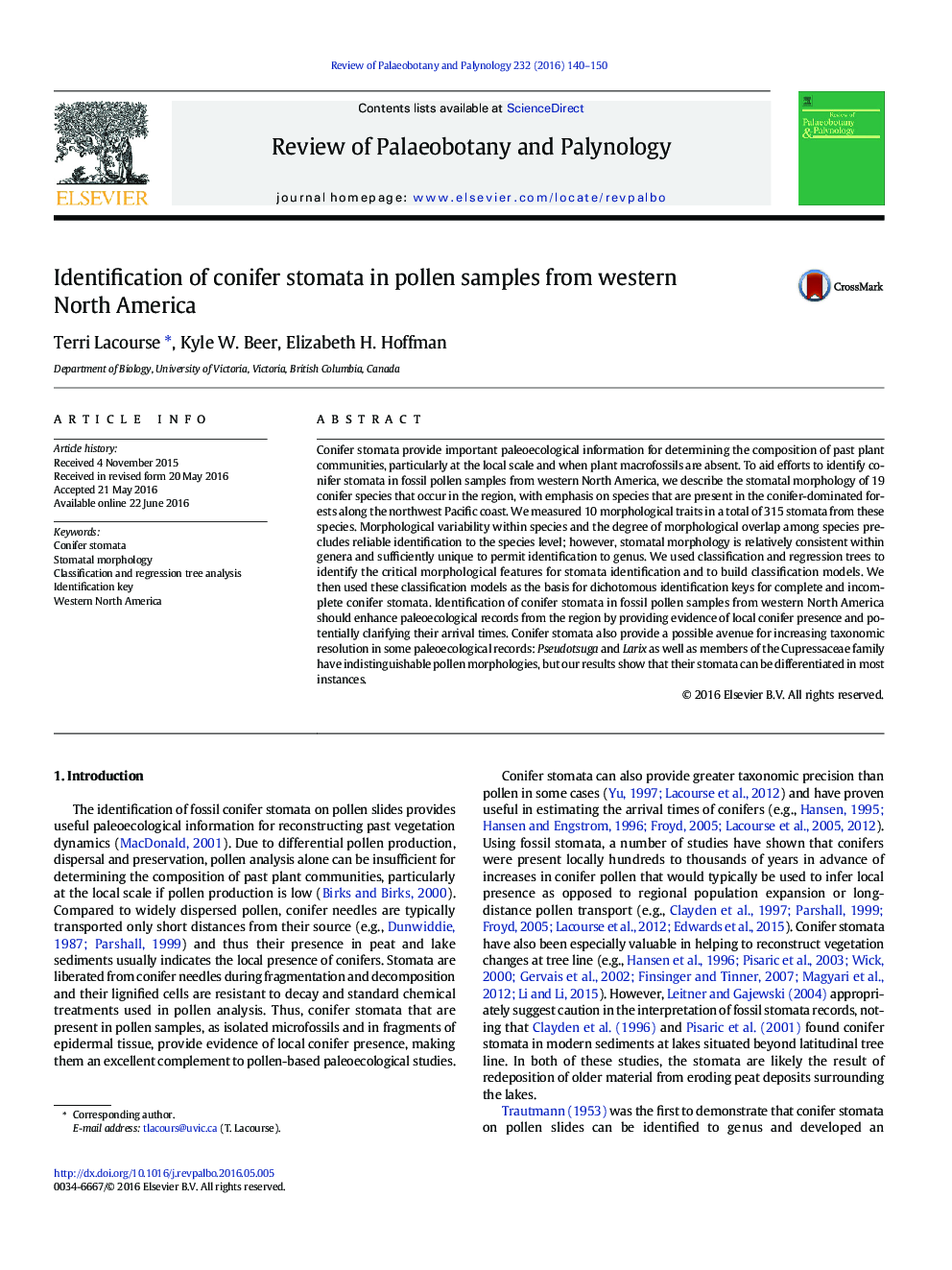| Article ID | Journal | Published Year | Pages | File Type |
|---|---|---|---|---|
| 4750084 | Review of Palaeobotany and Palynology | 2016 | 11 Pages |
Conifer stomata provide important paleoecological information for determining the composition of past plant communities, particularly at the local scale and when plant macrofossils are absent. To aid efforts to identify conifer stomata in fossil pollen samples from western North America, we describe the stomatal morphology of 19 conifer species that occur in the region, with emphasis on species that are present in the conifer-dominated forests along the northwest Pacific coast. We measured 10 morphological traits in a total of 315 stomata from these species. Morphological variability within species and the degree of morphological overlap among species precludes reliable identification to the species level; however, stomatal morphology is relatively consistent within genera and sufficiently unique to permit identification to genus. We used classification and regression trees to identify the critical morphological features for stomata identification and to build classification models. We then used these classification models as the basis for dichotomous identification keys for complete and incomplete conifer stomata. Identification of conifer stomata in fossil pollen samples from western North America should enhance paleoecological records from the region by providing evidence of local conifer presence and potentially clarifying their arrival times. Conifer stomata also provide a possible avenue for increasing taxonomic resolution in some paleoecological records: Pseudotsuga and Larix as well as members of the Cupressaceae family have indistinguishable pollen morphologies, but our results show that their stomata can be differentiated in most instances.
